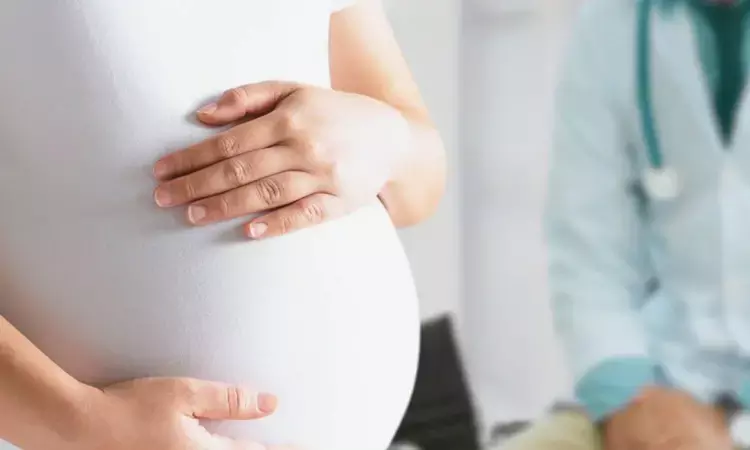- Home
- Medical news & Guidelines
- Anesthesiology
- Cardiology and CTVS
- Critical Care
- Dentistry
- Dermatology
- Diabetes and Endocrinology
- ENT
- Gastroenterology
- Medicine
- Nephrology
- Neurology
- Obstretics-Gynaecology
- Oncology
- Ophthalmology
- Orthopaedics
- Pediatrics-Neonatology
- Psychiatry
- Pulmonology
- Radiology
- Surgery
- Urology
- Laboratory Medicine
- Diet
- Nursing
- Paramedical
- Physiotherapy
- Health news
- Fact Check
- Bone Health Fact Check
- Brain Health Fact Check
- Cancer Related Fact Check
- Child Care Fact Check
- Dental and oral health fact check
- Diabetes and metabolic health fact check
- Diet and Nutrition Fact Check
- Eye and ENT Care Fact Check
- Fitness fact check
- Gut health fact check
- Heart health fact check
- Kidney health fact check
- Medical education fact check
- Men's health fact check
- Respiratory fact check
- Skin and hair care fact check
- Vaccine and Immunization fact check
- Women's health fact check
- AYUSH
- State News
- Andaman and Nicobar Islands
- Andhra Pradesh
- Arunachal Pradesh
- Assam
- Bihar
- Chandigarh
- Chattisgarh
- Dadra and Nagar Haveli
- Daman and Diu
- Delhi
- Goa
- Gujarat
- Haryana
- Himachal Pradesh
- Jammu & Kashmir
- Jharkhand
- Karnataka
- Kerala
- Ladakh
- Lakshadweep
- Madhya Pradesh
- Maharashtra
- Manipur
- Meghalaya
- Mizoram
- Nagaland
- Odisha
- Puducherry
- Punjab
- Rajasthan
- Sikkim
- Tamil Nadu
- Telangana
- Tripura
- Uttar Pradesh
- Uttrakhand
- West Bengal
- Medical Education
- Industry
Women with ankylosing spondylitis more prone to Increased risk of obstetric complications, reports study

A new study published in the journal of BMC Pregnancy and Childbirth showed that women with ankylosing spondylitis (AS) are more likely to experience obstetric difficulties such as caesarean delivery (CD), small-for-gestational-age (SGA) and intrauterine fetal death (IUFD).
The sacroiliac joints and spine are the main organs affected by the inflammatory, chronic, systemic illness known as ankylosing spondylitis. It is among the most prevalent seronegative spondyloarthropathies, with a significant hereditary component. Many autoimmune illnesses exhibit a modification of their disease activity during pregnancy. Contrary to rheumatoid arthritis, the majority of AS patients are in an active state of illness when they get pregnant, and pregnancy has no discernible positive impact on the disease activity of AS. Also, most AS patients experience a postpartum exacerbation of disease activity between six weeks and six months following birth.
Limited research with small sample numbers has examined how AS affects fetal and neonatal outcomes. Despite this condition being not rare among women of reproductive age, research on pregnancy outcomes has yielded mixed results. Thereby, Uri Amikam and his team conducted this study to assess pregnancy and perinatal outcomes in women with and without AS.
This retrospective cohort research utilized the Nationwide Inpatient Sample (HCUP-NIS) of the Healthcare Cost and Utilisation Project. All expectant mothers who gave birth or had a maternal death in the United States between 2004 and 2014 were included in the study. Before or during pregnancy, women having an ICD-9 diagnosis of AS were compared to the individuals who did not. Using multivariate logistic regression models that controlled for relevant confounders, delivery, pregnancy, and neonatal results were compared between the two groups.
A total of 9,096,788 women in all were included in the analysis. Of these, 383 women (3.8/100,000) were diagnosed with AS, while the remaining women served as controls. The women with AS were more likely to be older, Caucasian, originate from higher income quartiles, have thyroid issues, and become pregnant more than once when compared to women without AS.
When compared to the women without AS, the patients in the AS group showed greater rates of placenta previa, gestational diabetes, and caesarean delivery (CD) after controlling for variables. In terms of newborn outcomes, there was a greater incidence of small-for-gestational-age neonates and intrauterine fetal death in individuals with AS as opposed to those without. Overall, in addition to a higher risk of SGA and IUFD, women with AS are more likely to experience obstetric problems, such as CD.
Source:
Amikam, U., Badeghiesh, A., Baghlaf, H., Brown, R., & Dahan, M. H. (2024). Obstetric and neonatal outcomes in women with Ankylosing spondylitis - an evaluation of a population database. In BMC Pregnancy and Childbirth (Vol. 24, Issue 1). Springer Science and Business Media LLC. https://doi.org/10.1186/s12884-024-06833-0
Neuroscience Masters graduate
Jacinthlyn Sylvia, a Neuroscience Master's graduate from Chennai has worked extensively in deciphering the neurobiology of cognition and motor control in aging. She also has spread-out exposure to Neurosurgery from her Bachelor’s. She is currently involved in active Neuro-Oncology research. She is an upcoming neuroscientist with a fiery passion for writing. Her news cover at Medical Dialogues feature recent discoveries and updates from the healthcare and biomedical research fields. She can be reached at editorial@medicaldialogues.in
Dr Kamal Kant Kohli-MBBS, DTCD- a chest specialist with more than 30 years of practice and a flair for writing clinical articles, Dr Kamal Kant Kohli joined Medical Dialogues as a Chief Editor of Medical News. Besides writing articles, as an editor, he proofreads and verifies all the medical content published on Medical Dialogues including those coming from journals, studies,medical conferences,guidelines etc. Email: drkohli@medicaldialogues.in. Contact no. 011-43720751


